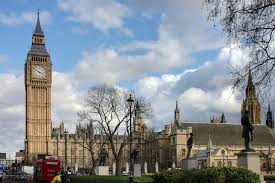SRE & RSE
A History of Sex Education in the UK - updated September 20201999 : SRE the beginnings
In 1999 the new Framework for Personal, Social and Health Education (PSHE) was published, this included the term SRE, coined to indicate that Sex Education should go beyond just the biological side and include ‘Sex’ AND ‘Relationship’ education. This was when SRE was born.
Also, in 1999 the Labour Government’s ten year Teenage Pregnancy Strategy for England was published. This was a national strategy to reduce the rate of teenage pregnancy that would be implemented at a local level. The strategy that ran from this time through to 2010 set a goal of halving the under-18 conception rate, which was achieved with the 2014 data showing a 51% reduction in the under-18 conception rate from 1998, the baseline year for the strategy; all 150 local government areas showed reductions, and conceptions leading to births and abortions were declining in parallel. It was as part of the work towards this national vision, that our founder Lynnette Smith and many of the BigTalk Education team became more heavily involved with SRE.
SRE a History : Fig.1 England under 18 conception rate- 1998-2014
2000 : SRE Guidance
In 2000, the Government published the SRE guidance for teachers, headteachers and governing bodies, this applied to maintained schools, academies and free schools. Applying to all state funded schools the guidance recommends that schools teach the subject of sex within the broader context of relationship education. The only aspects that must be covered are the elements of reproduction included in the national curriculum for Science and HIV, AIDS and other sexually transmitted infections. Schools were responsible for having an up to date policy which documents the content and organisation of SRE within school. At this point parents were able to withdraw their children from the SRE elements taught outside of the national curriculum for Science.
Due to a restructure to her then role, Lynnette Smith formed BigTalk Education in 2005 to ensure the secondary schools she was working within North Lincolnshire would continue to receive high quality SRE.
2008 : Political Uncerntainty
A Government review of SRE was announced in 2008 amid a tide of criticism for the current ‘patchy’ provision by Ofsted, the SEF and many other campaigners. During 2009 and 2010 politics got in the way of a significant change in SRE policy as during the review of new PSHE legislation the coalition government came into power and SRE legislation was discarded at this time.

Meanwhile Ofsted were also carrying out an evaluation of SRE and PSHE provision in primary and secondary schools. They recognised that whilst primary schools were generally doing better at the relationship side of SRE and secondaries better at the biological both on the whole were ‘not yet good enough’. This underpinned BigTalk Education’s vision to support primary schools with the new programme.
In 2014 an Education Select Committee inquiry into PSHE and SRE took place with the Life Lessons report in 2015 calling for SRE to be statutory, underlining the role of SRE in safeguarding children and young people.
2015 : Shocking Statistics
BBC figures published from a freedom of information request sent to all UK police forces showed that in 2015 more than 5,500 alleged sex crimes in UK schools had been reported to police in the previous three years, of which 600 were rapes. In some cases the victims and suspects were both five years old. These shocking statistics spurred action from Westminster and an inquiry into sexual harassment and sexual violence in schools was launched. BigTalk Education and other specialist bodies contributed to the evidence heard by the inquiry held by the Woman and Equalities Select Committee chaired by Maria Miller MP. They called on the Government to make SRE statutory in primary and secondary schools.
becomes Statutory 2017 : Children and Social Work Act
It was within the Children and Social Work Act which received Royal Assent in March 2017 that SRE was described as RSE. This act puts the relationship before the sex in relationship and sex education, thus SRE is now RSE. This act makes relationship and sex education statutory in all secondary schools and relationship education statutory in all primaries. Please note that reproduction is part of the science curriculum in primary schools. It is important to note that this education is across maintained and independent schools and all faith schools.
This will come into effect from September 2020. In anticipation of the new guidance that will be published to inform the roll out of statutory RSE in 2017 the Sex Education Forum published it’s twelve points for what is needed for high quality RSE.
2018 : RSE Draft Statutory Guidance Released
At the end of the 2018 Summer Term the Department for Education released the draft guidance for statutory RSE. Read the BigTalk Education response in our article on the 2018 RSE Guidance.
2019 : RSE Final Statutory Guidance Released
On 25th June 2019 the Department for Education released the final guidance for statutory RSE. All Schools are to be delivering statutory RE in primary schools and RSE in secondary. Parents can withdraw from the sex education element up to and until three terms before the child turns 16.
2020 : RSE became statutory from the 1st September



